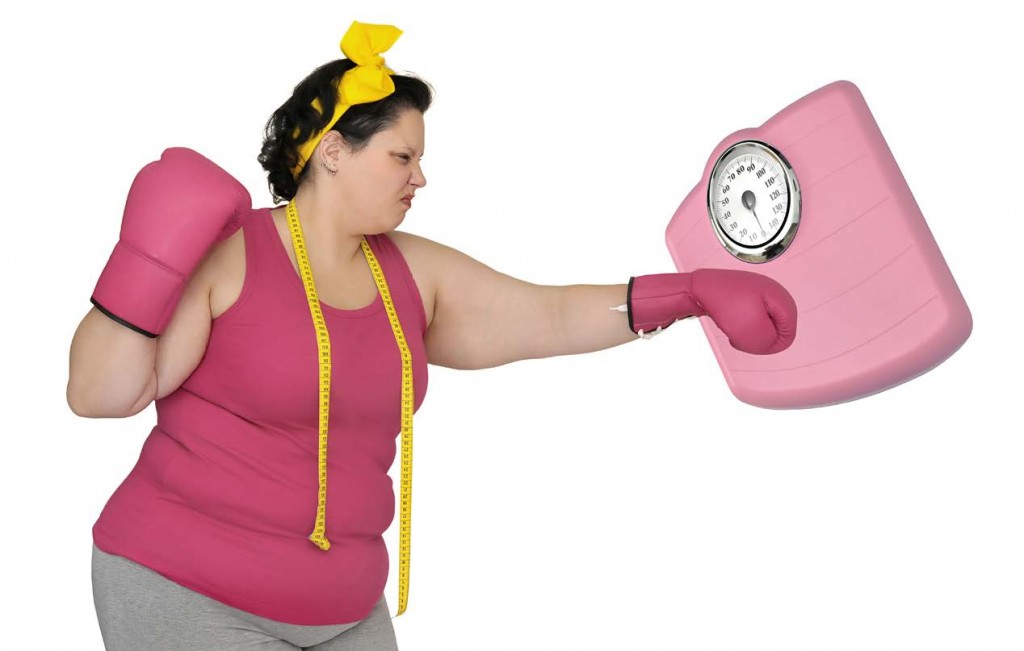
Understanding why you gain weight is a major first step towards weight loss.
When I moved to Canada as a teenager, I couldn’t get enough fast food. I craved cheeseburgers and devoured french fries. Milkshakes were nirvana. My weight increased quickly, and by the time I turned 15, I was a size 14. I didn’t like the way I looked, but worse, I didn’t like myself.
 Determined to make a change, I dived into dieting and lost 15 – 20 pounds on different fad diets, but gained it all back within a year. At 25 I got married, and before I knew it I’d gained 40 pounds. I didn’t realize how big I’d become until I tried to zip up a cocktail dress one evening. Within minutes, every dress I owned was on the floor. My husband walked into the room and stopped short when he saw the contents of my closet strewn around the room. He raised his eyebrows and started to speak but stopped when he saw the fierce look on my face. I forced myself to calm down and finally found a black skirt that would fit if I left the top two buttons open and a jacket that was long enough to hide my unbuttoned waistband.
Determined to make a change, I dived into dieting and lost 15 – 20 pounds on different fad diets, but gained it all back within a year. At 25 I got married, and before I knew it I’d gained 40 pounds. I didn’t realize how big I’d become until I tried to zip up a cocktail dress one evening. Within minutes, every dress I owned was on the floor. My husband walked into the room and stopped short when he saw the contents of my closet strewn around the room. He raised his eyebrows and started to speak but stopped when he saw the fierce look on my face. I forced myself to calm down and finally found a black skirt that would fit if I left the top two buttons open and a jacket that was long enough to hide my unbuttoned waistband.
In the driveway, my husband gingerly asked me if I was okay and I burst into tears. Anger surged through me. “Nothing fits!” How could I have let this happen? I felt unworthy and I hated myself. As we drove away, I vowed to do whatever it took to feel worthy again. That realization was the first step in changing my behavior.
Anyone who has ever lost weight knows that keeping it off is more challenging. Most people regain the weight and blame the diet. We’re missing the point here. Diets are tools for reaching the weight we want to be. They’re short-term solutions. It’s our responsibility to create a lifestyle that will support our weight maintenance. This is easier said than done, because lasting change requires determination, commitment, practice and the willingness to change some of our habits.
How Are You Motivated?
Human beings are motivated toward pleasure or away from pain. Behavioral therapy has shown that people who yo-yo diet are motivated to move away from pain but don’t know how to move toward pleasure and stay there.
Have you ever started a diet or exercise program because your clothes were tight or your doctor told you to lose weight? If so, you were being motivated by pain. You were probably thrilled with your initial success, but over time you lost your motivation and slid back to your old habits and behaviors and put the weight back on. People who maintain their weight long-term are motivated by the pleasure of feeling healthy and having a good body image, and they consistently focus on this goal.
As a behavioral weightloss coach, I ask my clients what they want to achieve and what  achieving this goal means to them. By far, the responses I get most are:
achieving this goal means to them. By far, the responses I get most are:
- I don’t want pain in my joints.
- I don’t want to be unhealthy.
- I hate having low self-confidence.
- I don’t like being fat.
Notice that my clients are answering in negatives and want to move away from pain. But our unconscious mind cannot process negatives, because it interprets everything we say as a positive thought. So if we think, “I don’t like being fat,” our unconscious minds interpret that as “I like being fat.” Our minds do what we direct them to do, so they focus on “liking to be fat” and help us to behave in a way that keeps us fat.
Furthermore, when my clients make negative statements, their feelings are negative, too. My thinking about moving away from the cause of their pain, they’re giving attention to the very things they don’t want. The key to success is to think about what we do want and feel good about our decision to achieve it.
The key to success is to think about what we do want and feel good about our decision to achieve it
To be motivated toward what you want requires changing your words, creating new thoughts and behaviors and taking pleasure in moving toward your goals. When my clients share a goal to move away from pain, I ask them, “What do you want instead that is positive and even more important?”
Gaining Clarity
This exercise will help you tweak your motivation style so that you’re moving toward pleasure and can consistently focus on your ideal weight. Draw a line down the center of a sheet of paper. At the top of the left column, write “Away From: What I don’t want.” At the top of the right column, write “Toward: What I do want.” Fill in the left column first. Then, based on what you’ve written, write what you do want in the right column. For example, if the left column says, “I don’t want pain in my joints,” the right column right say, “I want to be flexible.
Tackling Emotional Eating
Emotions trigger us to turn to food, and for some people that has turned into a habit. Behavioral therapy suggests the following three steps for overcoming emotional eating:
STEP 1 – Become Aware
When you feel the urge to eat emotionally or engage in behavior that is inconsistent with your weight-loss goals, ask yourself:
- What is making me engage in this kind of behavior?
- How am I feeling and why am I feeling this way?
STEP 2 – Find the Positive Intention
Now ask yourself:
- What am I gaining from this behavior?
- What are the consequences of engaging in this behavior?
I had a workshop participant who binged on sweet foods, especially milk and cookies, at night while the kids were in bed. When I asked her what was making her engage in this behavior, she replied that she was looking for comfort.
“Comfort from what?” I asked. “I feel things are out of control and it’s stressful,” she said. “Eating cookies makes me feel better for a while.”
- “What are you gaining from this behavior other than feeling good?” “I’m feeling in control.”
Notice how a negative behavior for her has a positive intention. Eating cookies made her feel in control, and it’s the feeling of being in control that she was craving. I told her to acknowledge these feelings and the positive intention. I finally asked her what the consequences of continuing with this behavior would be.
Her answer: “I will continue feeling upset, I’ll gain more weight, but more important, I’ll be teaching my kids to numb out their feelings, and I’m scared they’ll like it the way it is and end up like me.”
STEP 3 – Implement a plan for next time
Life throws us curveballs, and some emotional states may trigger emotional eating. Now that you are aware and recognize the positive intention, plan for those curveballs and devise possible solutions that will be the best fit for you at the time.
Think of specific times when you have turned to food for emotional reasons, and for each time, list at least five actions you could have taken instead of turning to food. Keep this list with you and treat it like a tool in a toolbox.





